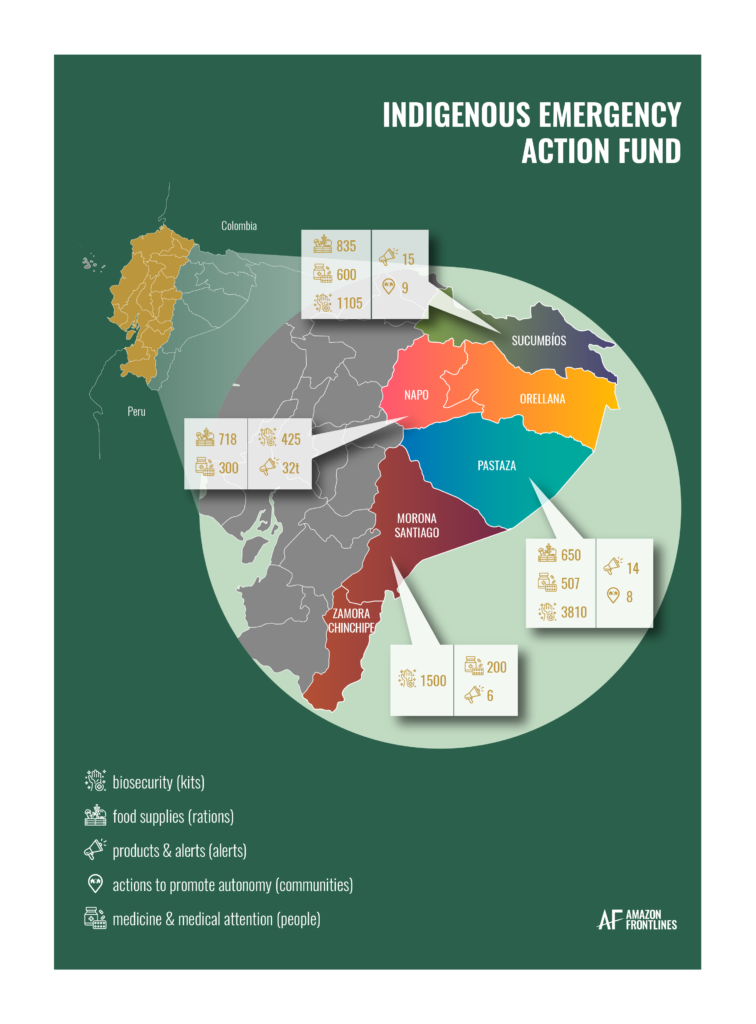
Indigenous Emergency Action Fund Report
COVID-19 has posed a significant global threat, affecting all countries and cities on the planet. However, Indigenous peoples are highly vulnerable due to the scarce and, in many cases, non-existent access to health care, information, transportation, infrastructure, and essential resources to face the crisis. Also, in Ecuador the government has proven unable to respond to the health crisis appropriately. Adding to the impact of the pandemic, Indigenous territories and communities continue to be invaded and exploited by extractive interests, which has only worsened the crisis.
In light of the difficult situation they are facing, Indigenous-led organizations Ceibo Alliance, CONFENIAE, and CONAIE joined forces with Amazon Frontlines to engage civil society and other organizations and find the means to tackle the COVID-19 crisis in their communities. In this way, we have worked over the many months of the pandemic to prevent and respond to emergencies. We will continue working in the months to come and in the future, supporting and building autonomy and self-sufficiency in Indigenous communities to resist the pandemic.
CULTURALLY APPROPRIATE COMMUNICATION
Lack of access to information on COVID-19 limits the actions communities can take to handle the pandemic. Furthermore, most of the available materials hardly take cultural aspects into account. For this reason, we developed culturally adapted material in native languages. We facilitated access to this information so that communities can assess their situation and have the tools to make decisions regarding the prevention of the virus and the management of the disease in their territories.
- We made more than ten infographics in six languages, disseminated on social networks, prints, and flash drives for communities.
- We produced several radio broadcasts on local and national stations and an animation in different languages.
- Together with other organizations, we supported the development and distribution of culturally adapted Prevention and Response Protocols endorsed by PAHO.
- Together with Indigenous leaders, we visited nine Waorani communities in Pastaza to directly and effectively raise awareness about the risks associated with the virus and how to prevent it.
- We delivered communications material in communities, reinforcing the message of autonomy regarding health and food issues during the pandemic.
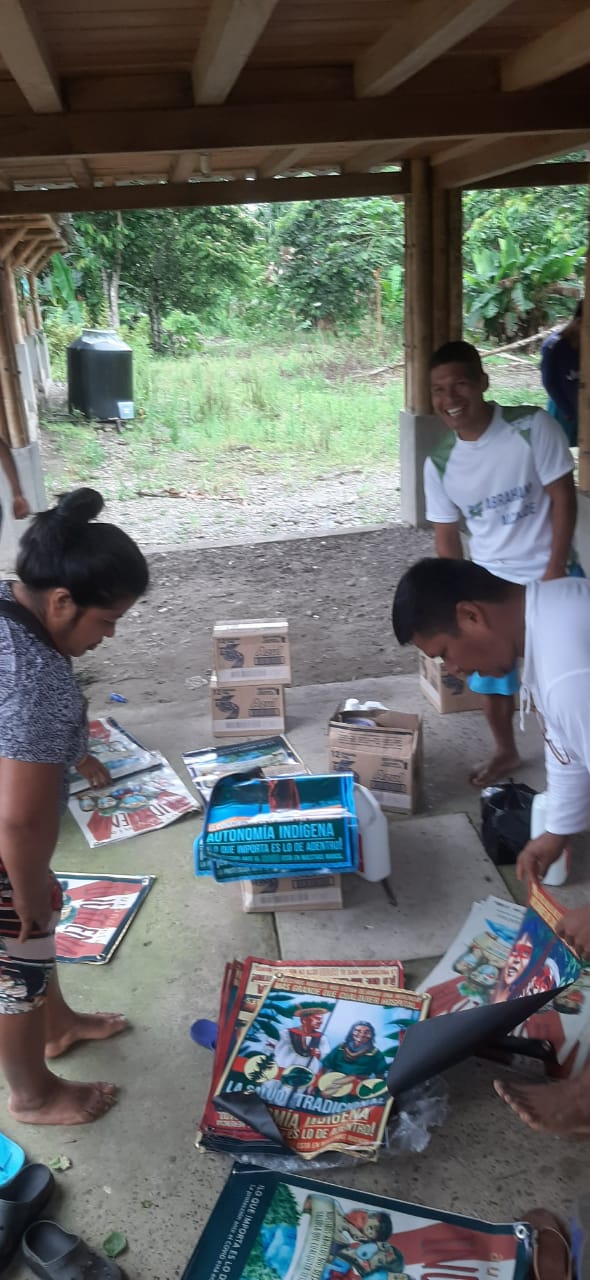
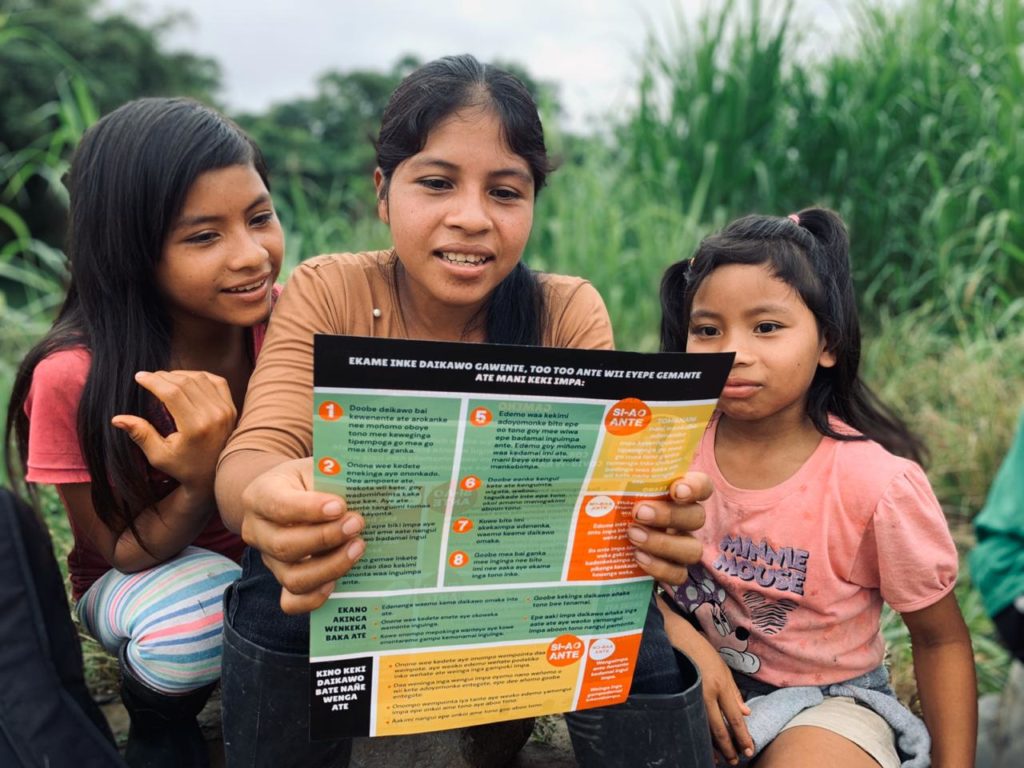
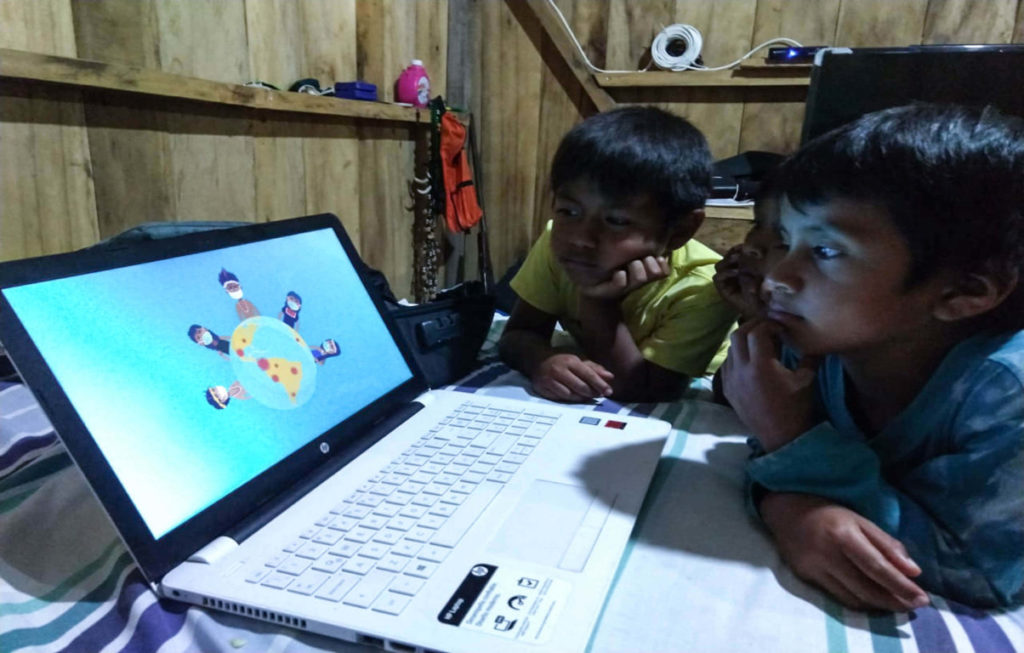
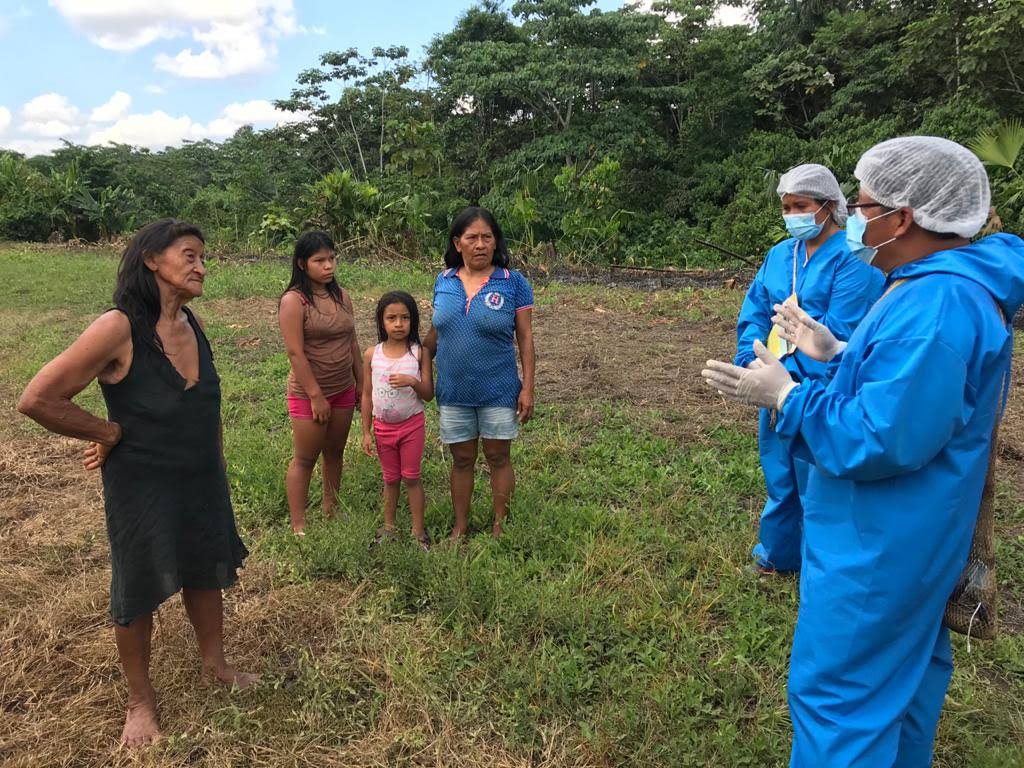
STRENGTHENING TERRITORIAL PROCESSES DURING THE PANDEMIC
The isolation of Indigenous communities is a crucial part of stopping the spread of the virus into their territories. However, that same isolation in a time of pandemic has also exacerbated recurring problems and threats, such as invasions, illegal mining, illegal hunting, etc. During this crisis, support for Indigenous land patrols guarantees continuous surveillance against threats and gives the communities more significant control of the territory.
- We provided continuous support for the Kofan indigenous land patrols of Sinangoe against illegal mining and for the Siona of Putumayo against armed actors and invaders:
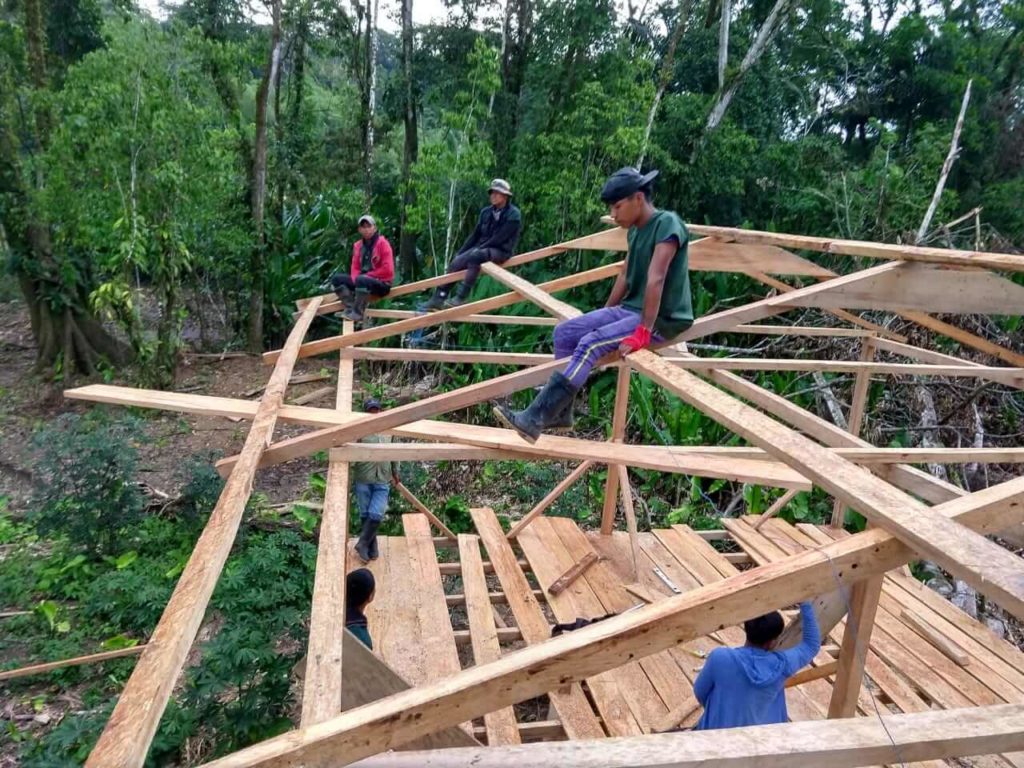
- We facilitated technical support for the formation of a Waorani land patrol during the pandemic, which will serve to protect their people’s health, cultural diversity and territory, through a control and surveillance system
HUMANITARIAN ASSISTANCE
Due to the difficulty of access to health facilities and the limited response of the State to address the communities’ health needs, it was essential to help prevent contagion and identify and provide assistance to COVID-19 cases in communities. Furthermore, due to the isolation measures, it was necessary to assist with essential provisions to contain the first impacts of the isolation.
- We delivered 650 food rations to Kichwa, Waorani, Sapara, Andwa, Shiwiar, Shuar, and Achuar families in Pastaza.
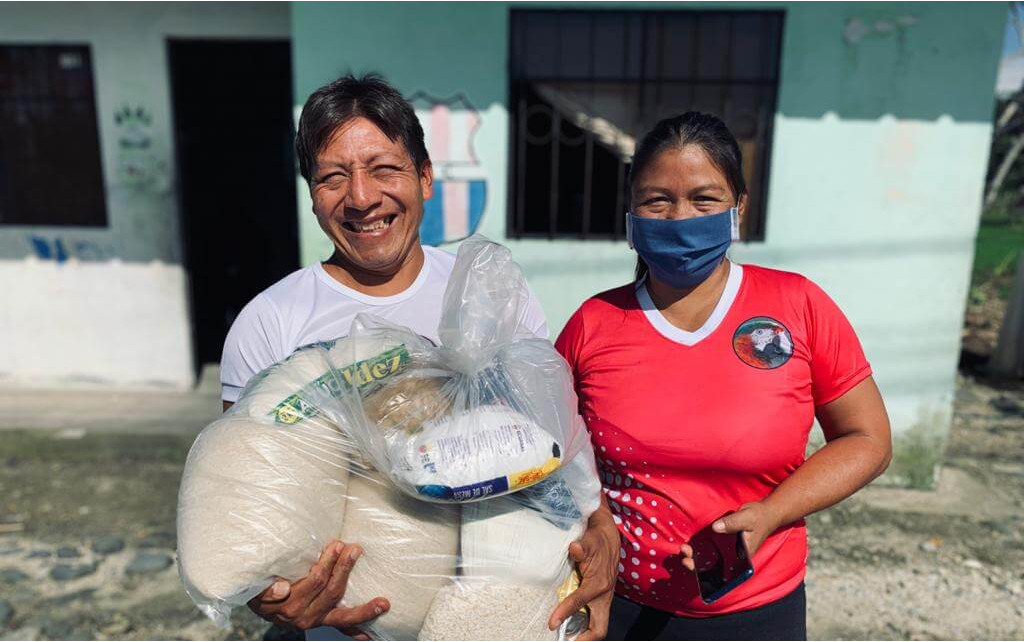
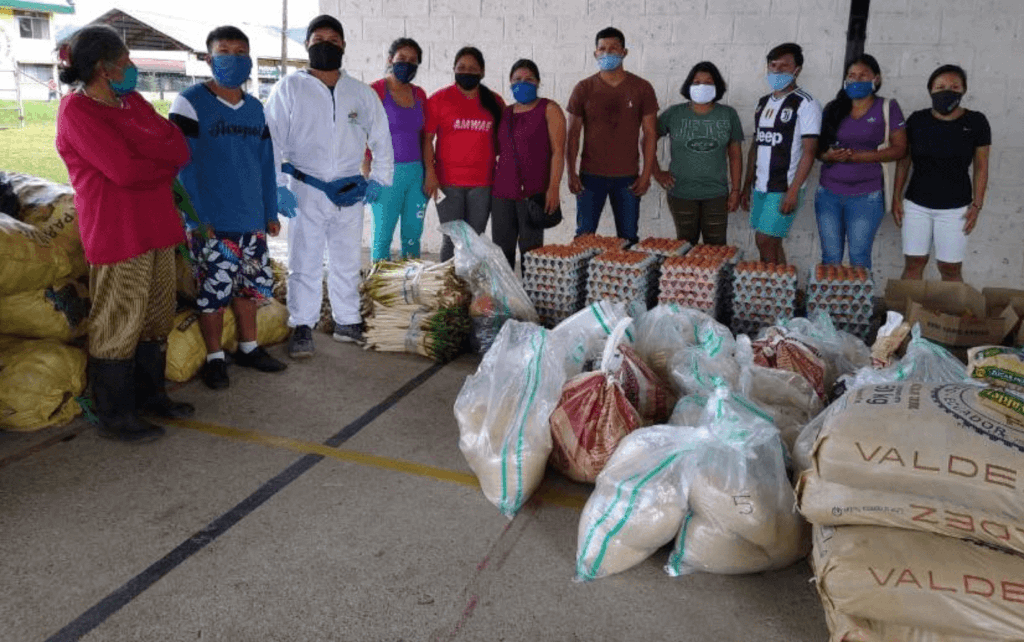
- We delivered 610 food rations to Siona, Kofan, and Siekopai communities in Ecuador’s Sucumbios region and along Colombia’s Putumayo River
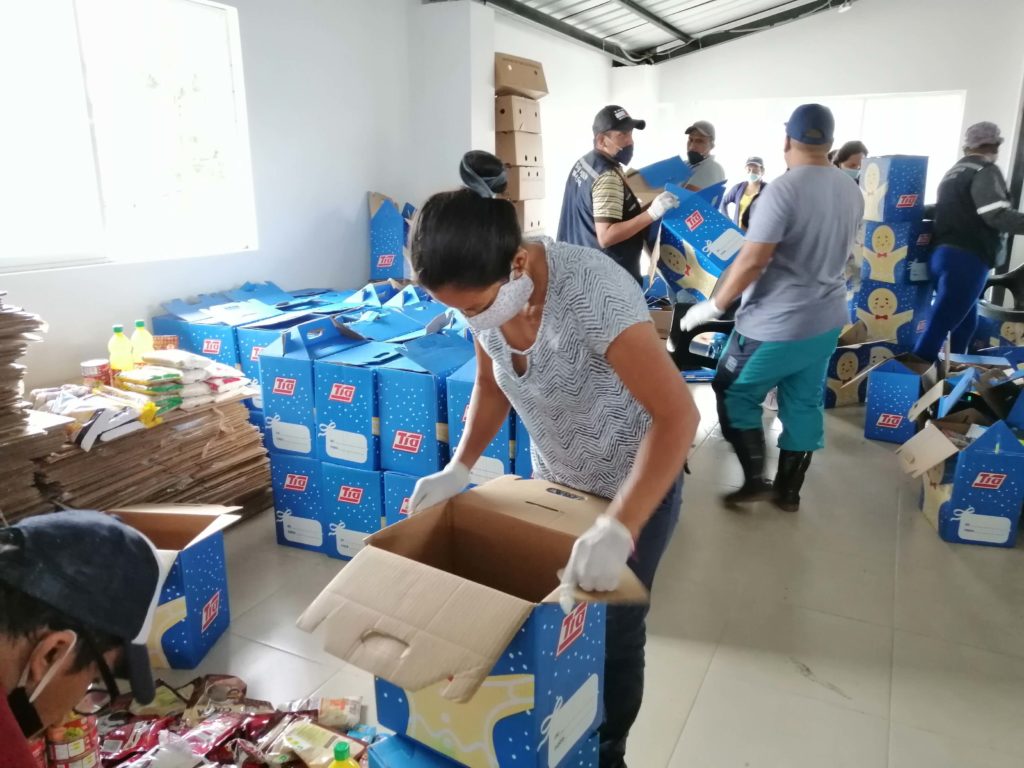
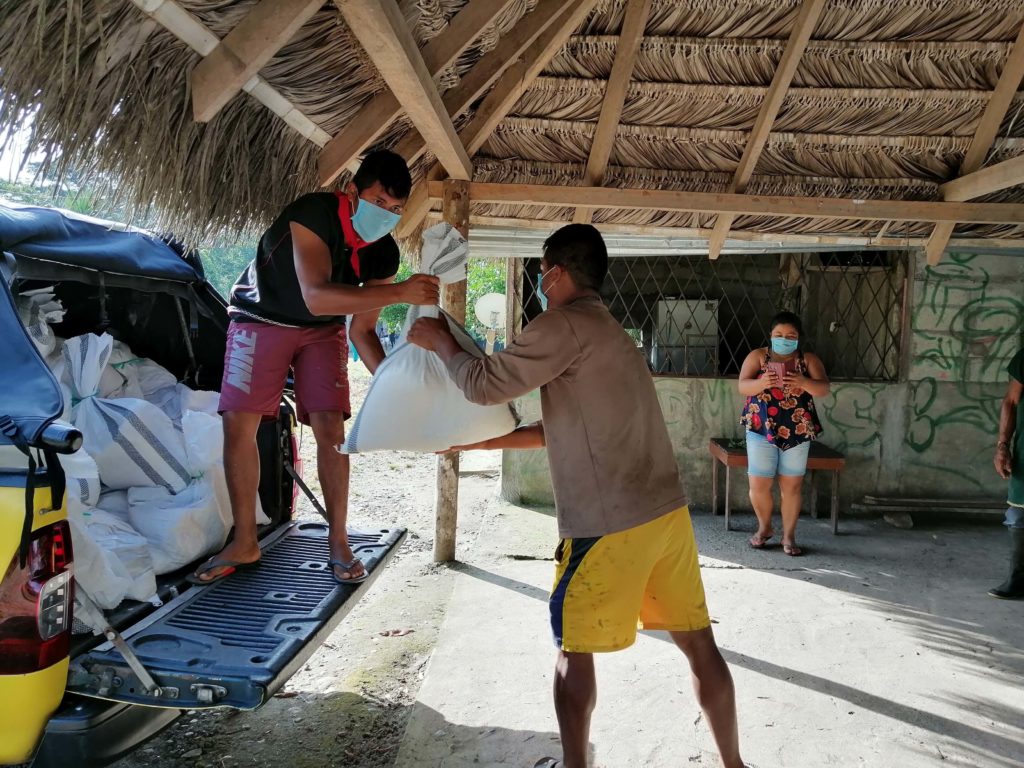
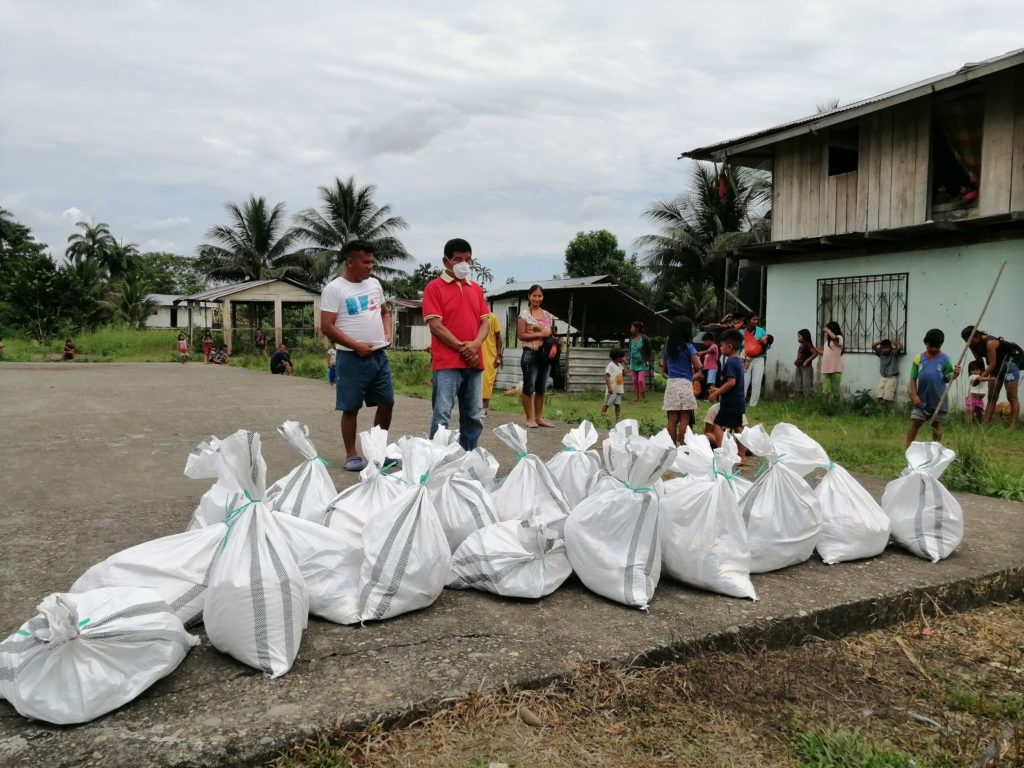
- We distributed 6,700 biosecurity kits to communities throughout the Amazon region.
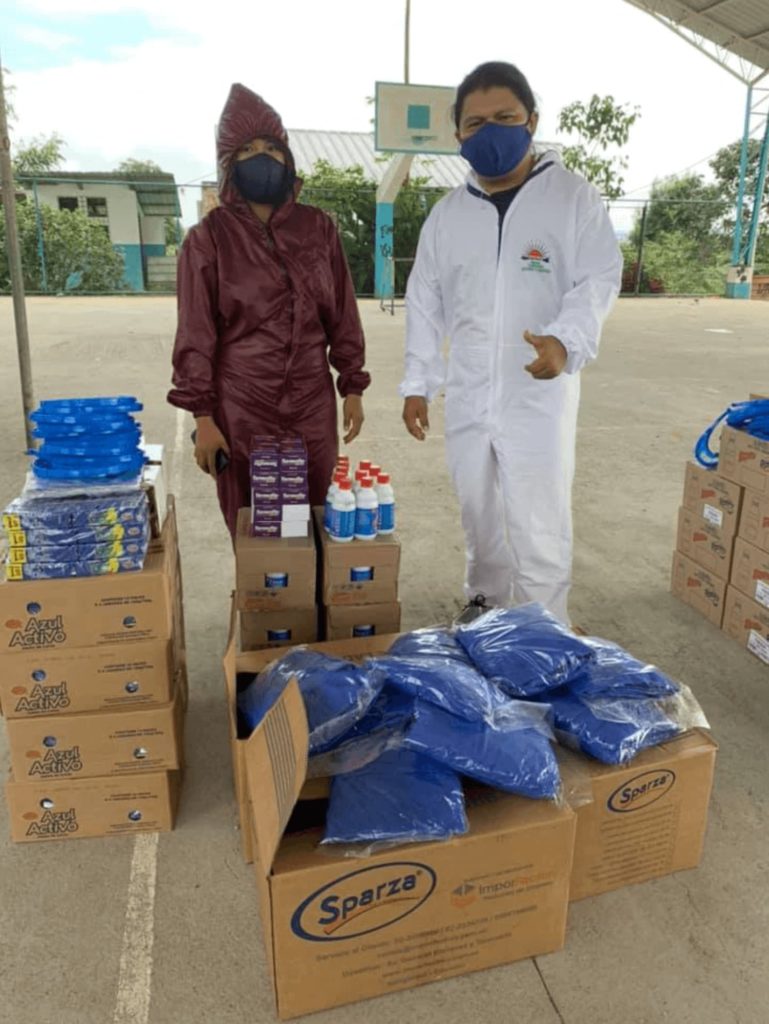
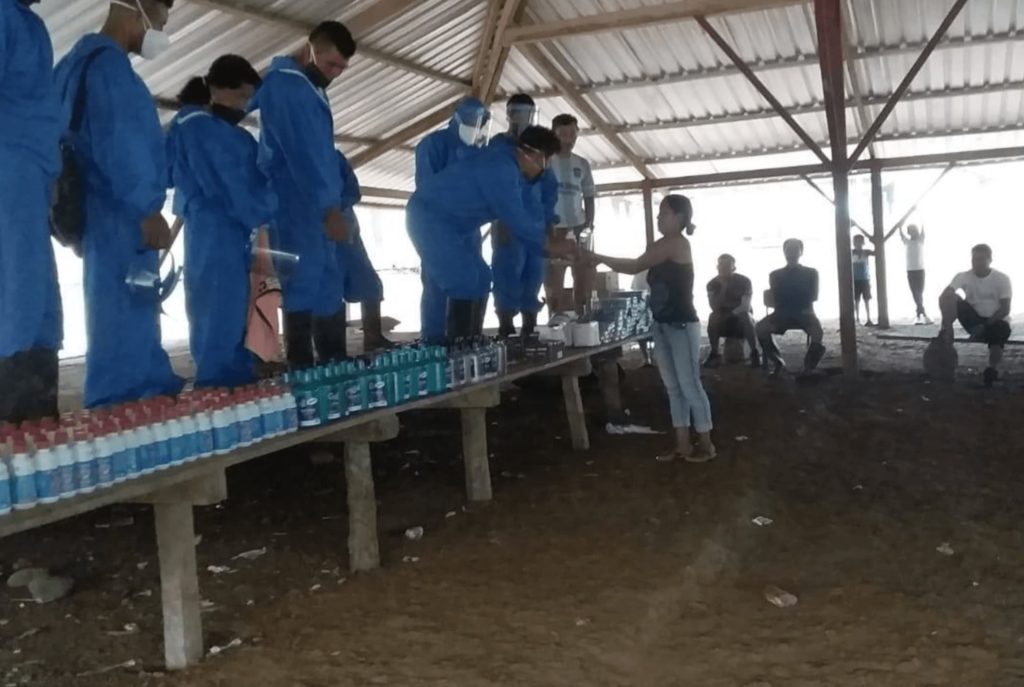
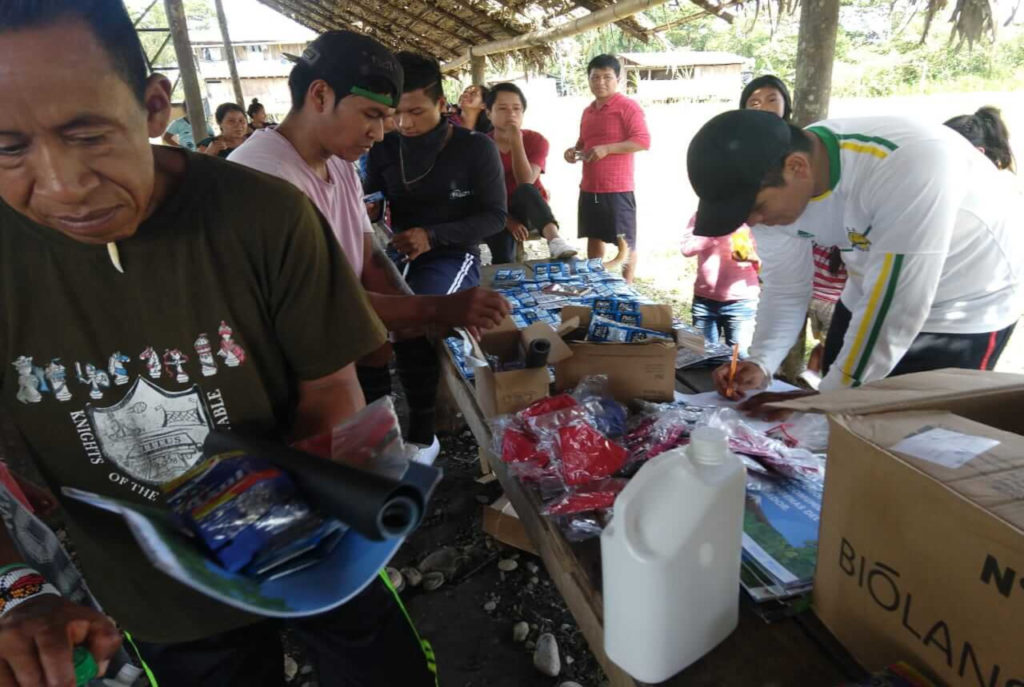
- We distributed medicine and medical equipment to Siona communities in the Putumayo River, as well as to Siekopai communities in Peru who faced high COVID-19 infection rates..
- We supplied 350 rapid tests to Ecuador’s Waorani Indigenous Organization (NAWE) for Waorani communities, 300 to Siekopai communities, 100 for Kichwa communities in Napo, and 200 to Achuar communities in Morona.
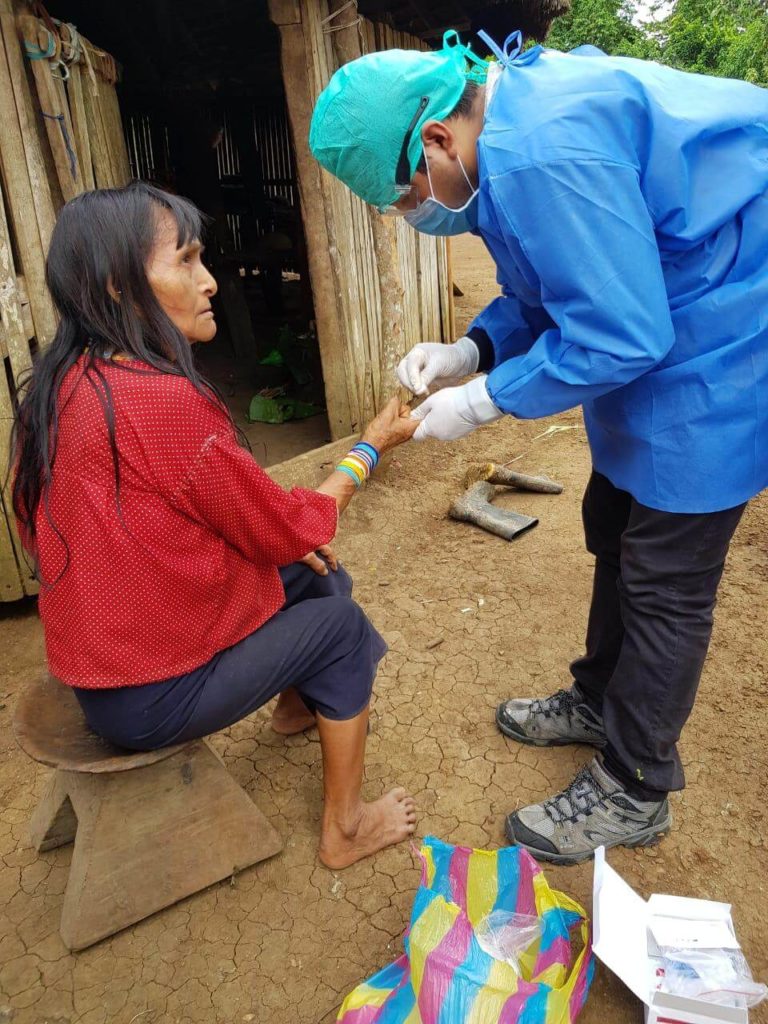
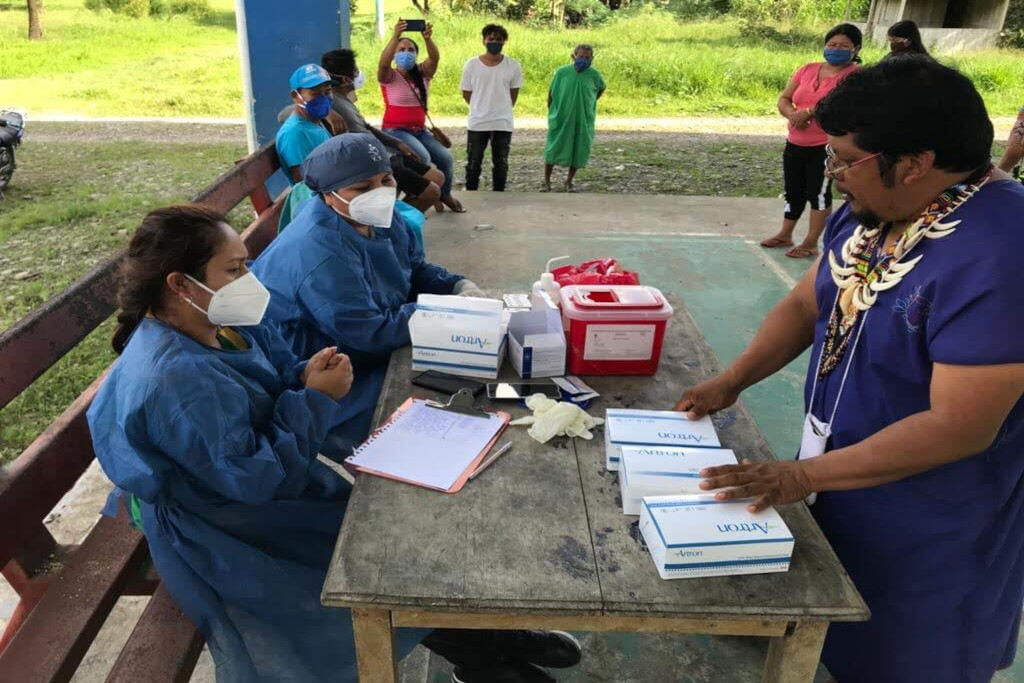
- In coordination with the University of the Americas (UDLA) , we carried out more than 500 PCR tests for the Waorani nation and more than 250 for the Kofan and Siona communities
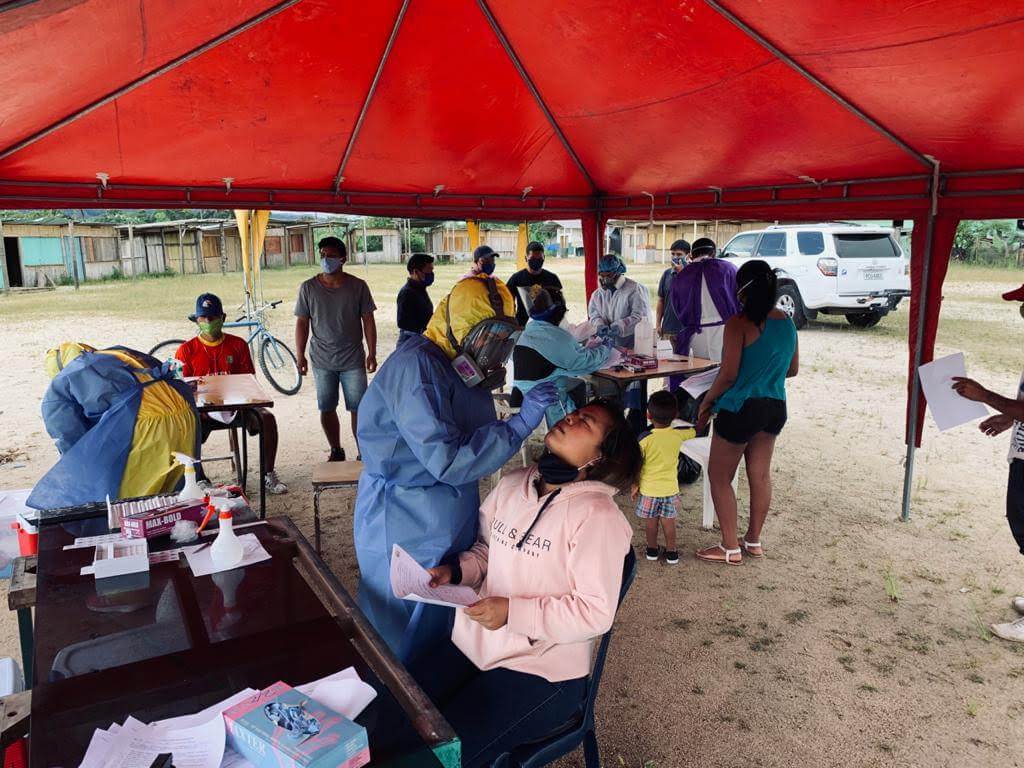
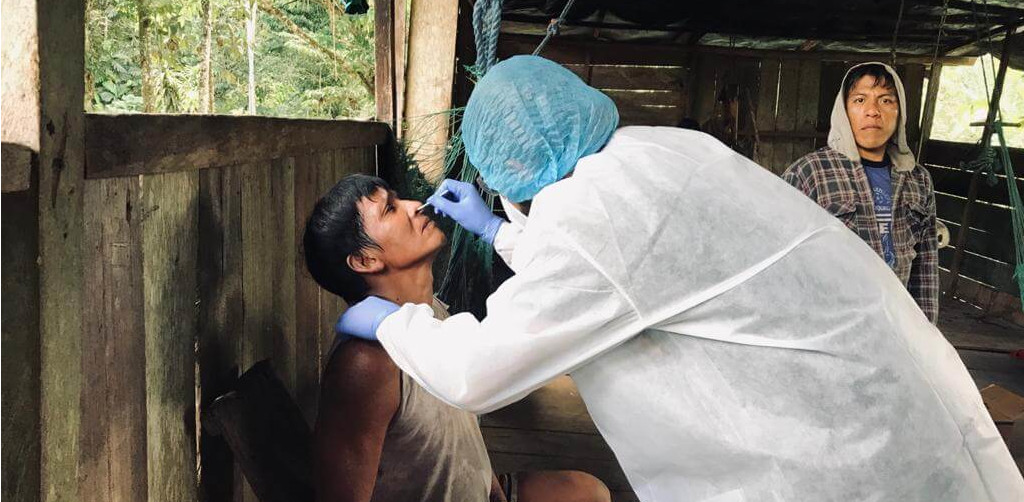
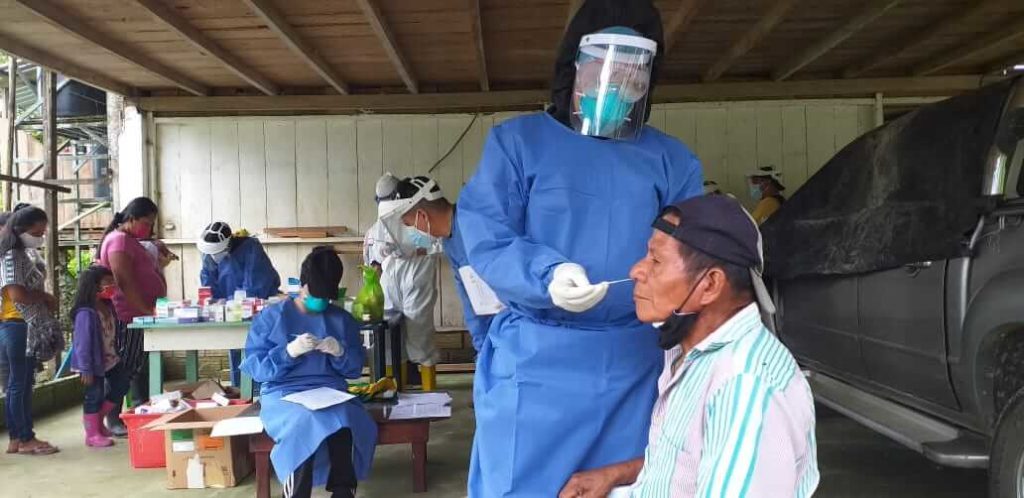
LEGAL ACTIONS
With the Government and its oversight agencies overwhelmed by the pandemic response, human rights violations and environmental damage proliferated in Indigenous territories. CONAIE, CONFENIAE, and Amazon Frontlines were instrumental in creating and promoting the Alliance for Human Rights in Ecuador, which brought together several civil society organizations to monitor, report, and litigate human rights abuses. Strengthened by the Alliance, Indigenous organizations and nations took legal action and applied political pressure to protect their families and territories from the undue risks associated with COVID-19, while demanding government support and action.
- We published more than 60 human rights alerts during the pandemic, including early COVID-19 outbreak warnings in Siekopai and Waorani communities. We also demanded humanitarian aid during severe floods and fought back against unconstitutional government policies and practices.
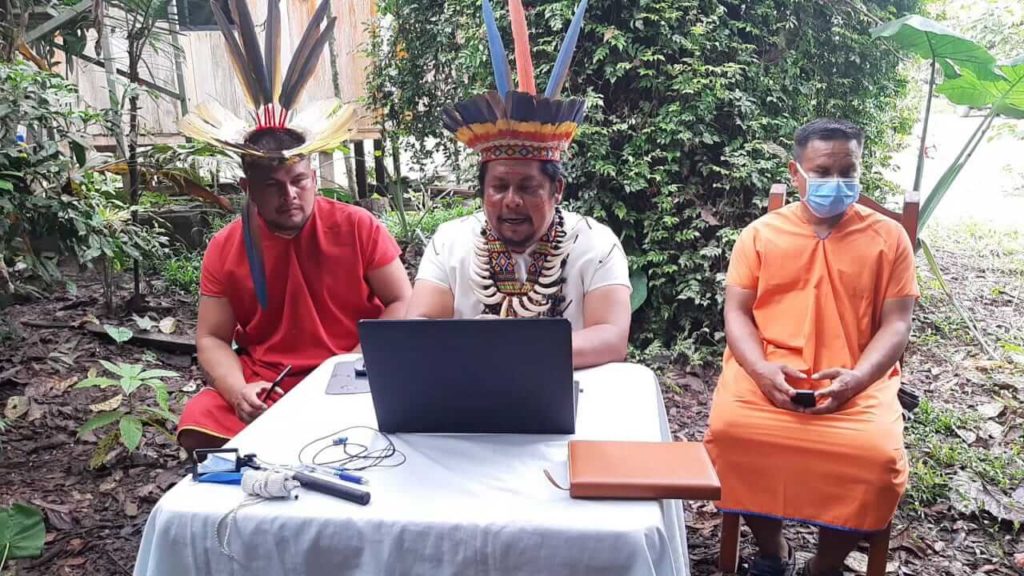
- With the Waorani nation, we requested and were granted protection measures by the Ecuadorian court. These measures are aimed at protecting their communities, including isolated peoples, from imminent risk of physical and cultural extinction due to the acceleration of COVID-19 in their territory. The Waorani also filed protection measures with the Inter-American Commission on Human Rights (IACHR).
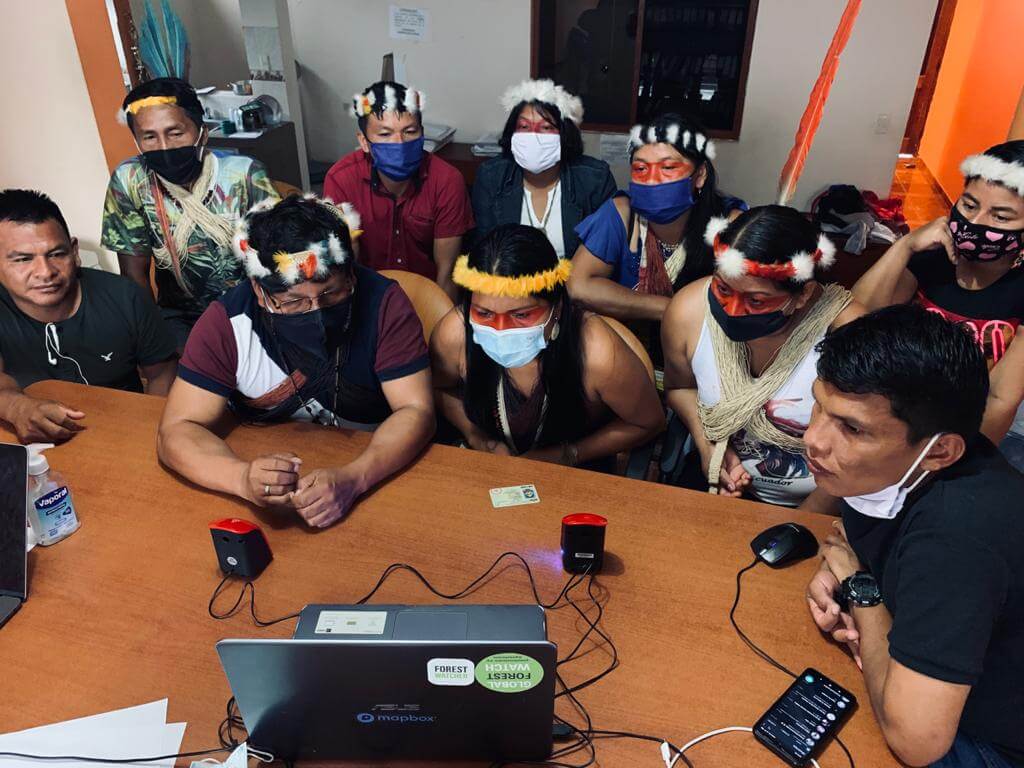
- We presented numerous reports to the United Nations and the IACHR to denounce human rights violations in the context of the pandemic, resulting in a hearing during the 176th Session of the IACHR.
- We secured an injunction against the use of lethal force on civilians from the Ecuadorian court.
- We issued an alert and prepared legal action against the possible attempt by the Executive Branch to issue infra-constitutional regulations on prior consultation for mining projects during the pandemic.
OIL SPILL
On April 7, 2020, in the midst of the COVID-19 crisis, two oil pipelines ruptured, causing Ecuador’s worst oil spill in more than a decade. The spill affected approximately 118,617 people on the banks of the Coca and Napo Rivers and more communities downstream in Peru. Hundreds of Indigenous communities faced food shortages as they depended on these rivers for food and freshwater. This oil spill, and the Government’s inadequate response to it, violates Indigenous peoples’ constitutional rights to territory, health, information, water and food sovereignty, a clean and balanced environment, and the rights of Nature.
- CONFENIAE, the regional Indigenous federation of the Kichwa peoples (FCUNAE), the Ecuadorian Alliance for Human Rights, and several affected Indigenous families filed a lawsuit demanding that the Government and oil companies carry out urgent environmental remediation, provide reparations to those affected, and repair or relocate the pipes to prevent future spills.
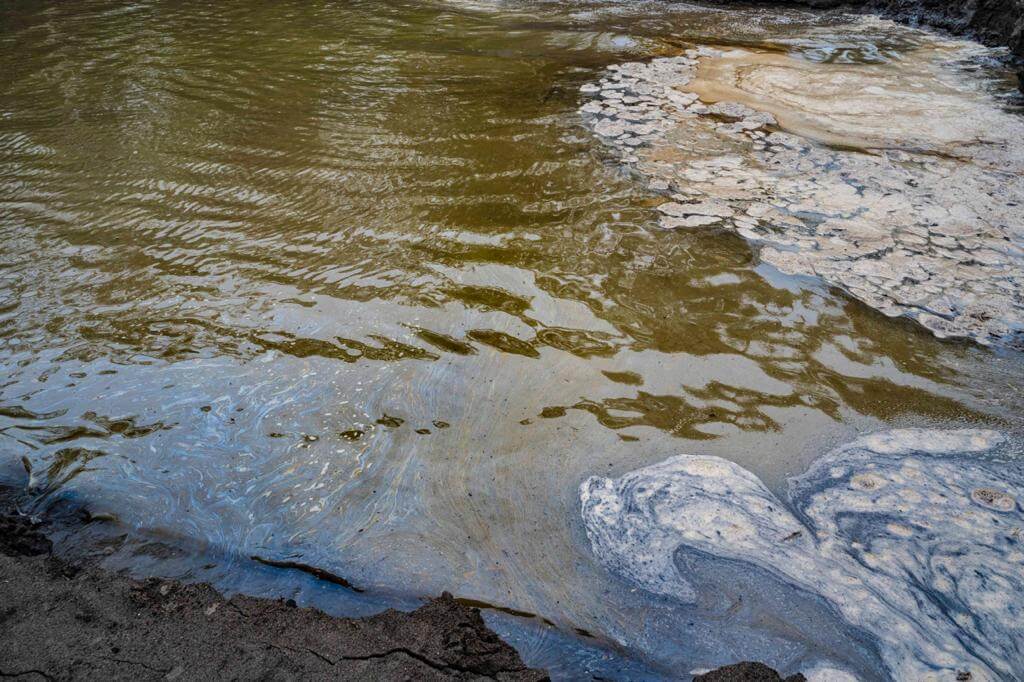
- We launched a national and international digital media campaign to raise awareness of the oil spill and pressure the government and oil companies to respond.
- We coordinated with the Ministry of Health to send medical brigades to 15 communities to identify dengue, malaria, and skin conditions, assisting the Ministry with logistics and delivery of medicines, biosafety equipment, and rapid COVID tests.
- We delivered 300 food rations to families from affected Kichwa communities in San Pablo, Toyuca, Sardinas, and Huataraco.
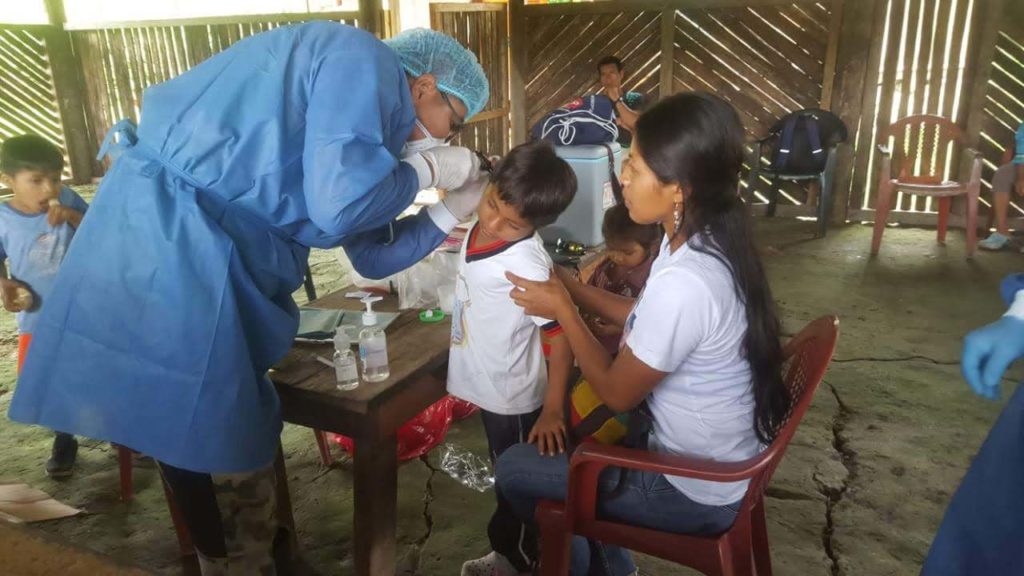
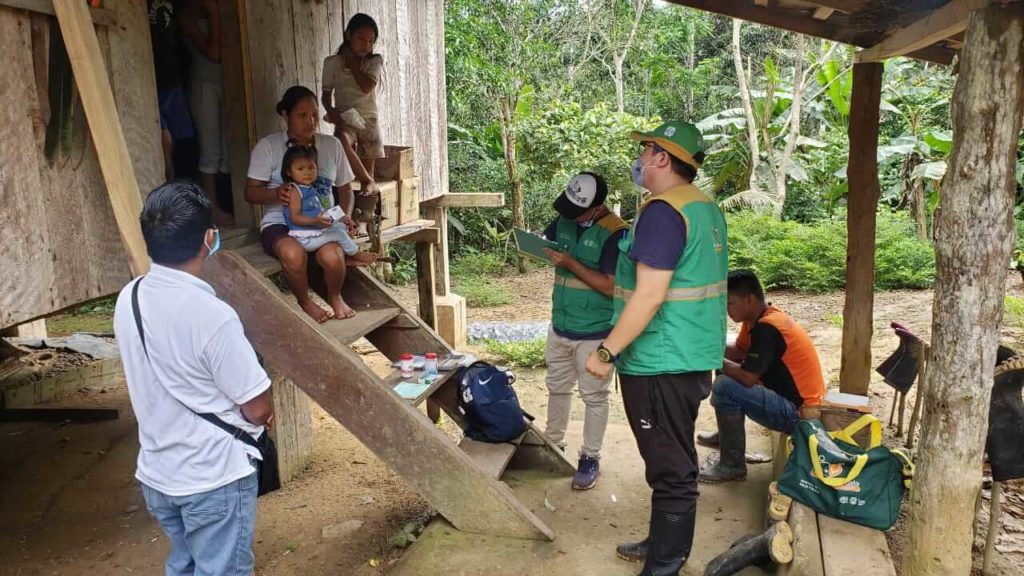
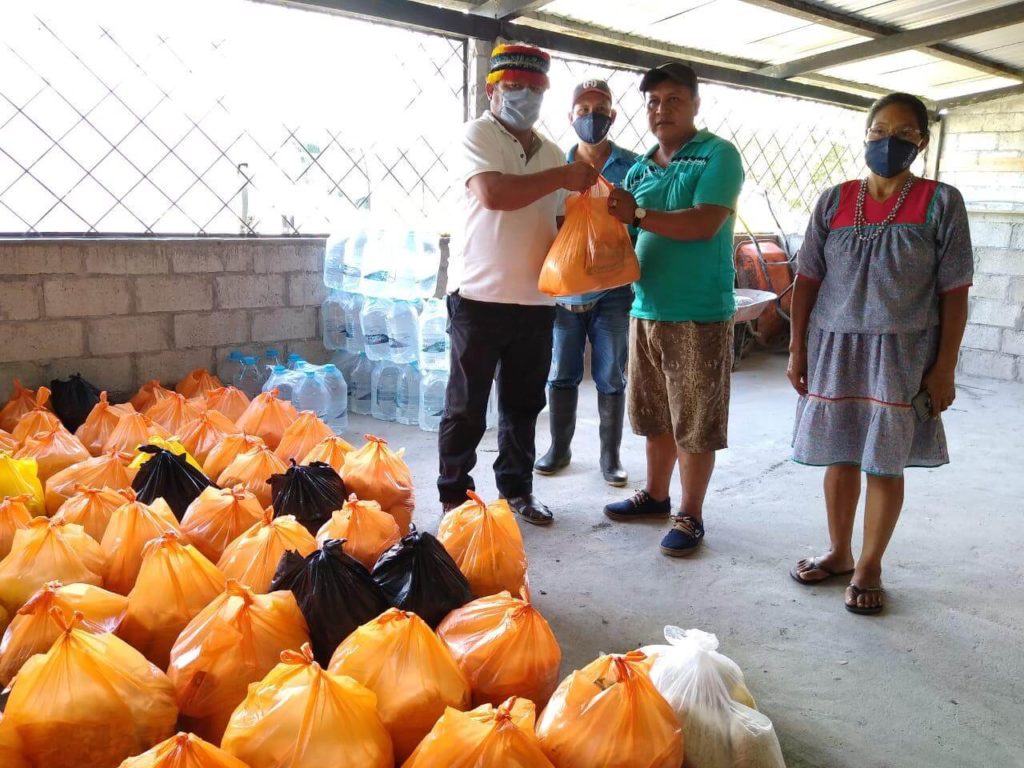
- We organized professional dermatological care to the communities of Sani Isla and El Pilche.
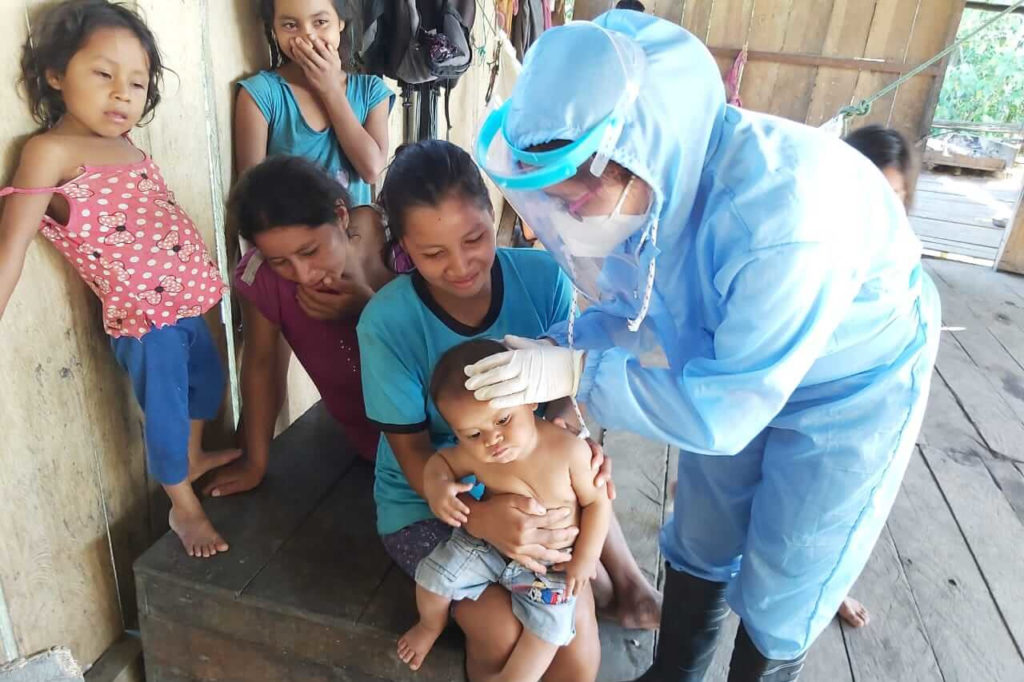
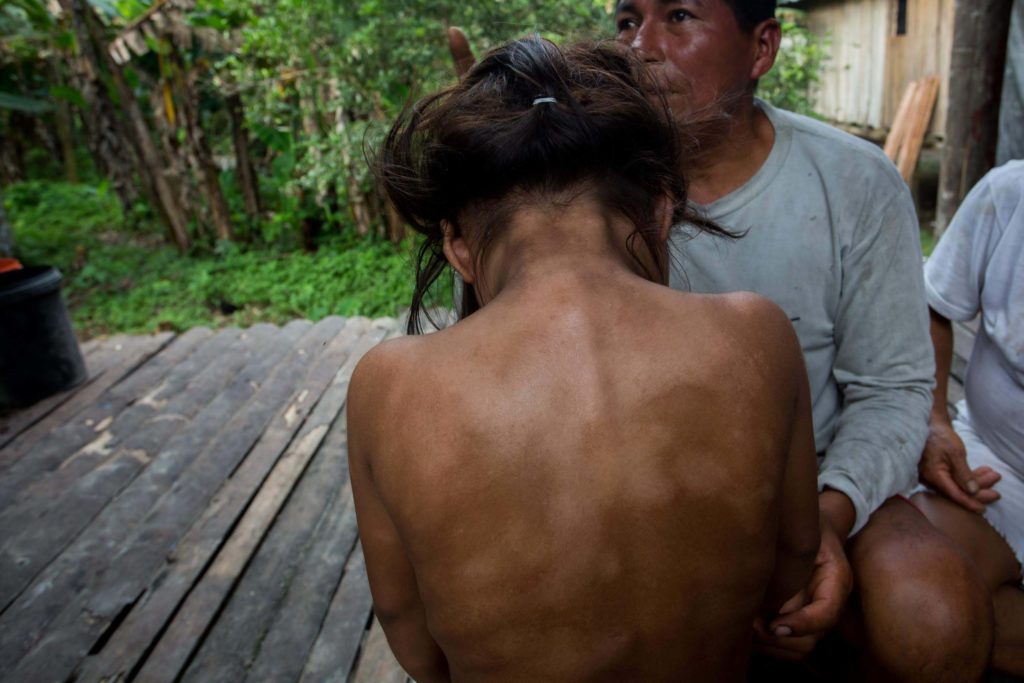
DEMANDING INSTITUTIONAL RESPONSIBILITY
Due to the heightened vulnerability of Indigenous peoples and the Ecuadorian government’s limited response, it was essential to instigate effective, culturally appropriate, and consistent state-sponsored actions. We called for humanitarian aid to vulnerable Indigenous populations while demanding government accountability for its actions during the crisis.
- We procured 942 MIES food rations for Waorani, Siona, Siekopai, and Kofan communities, and we coordinated logistics and delivery.
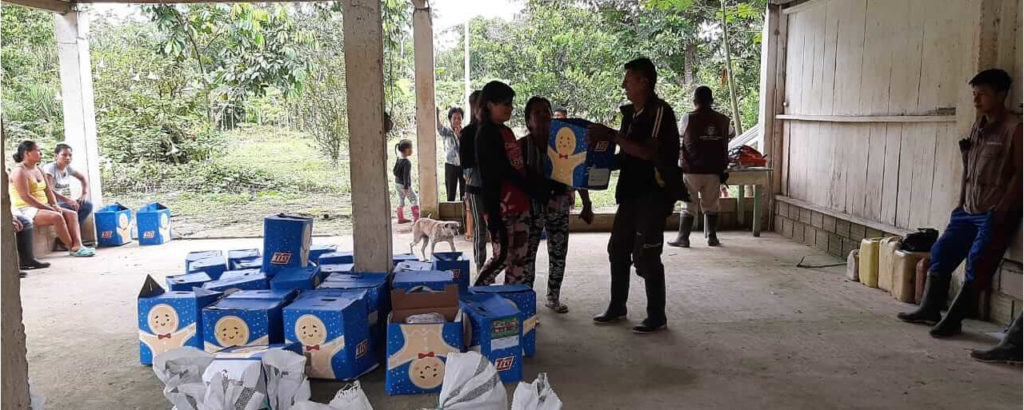
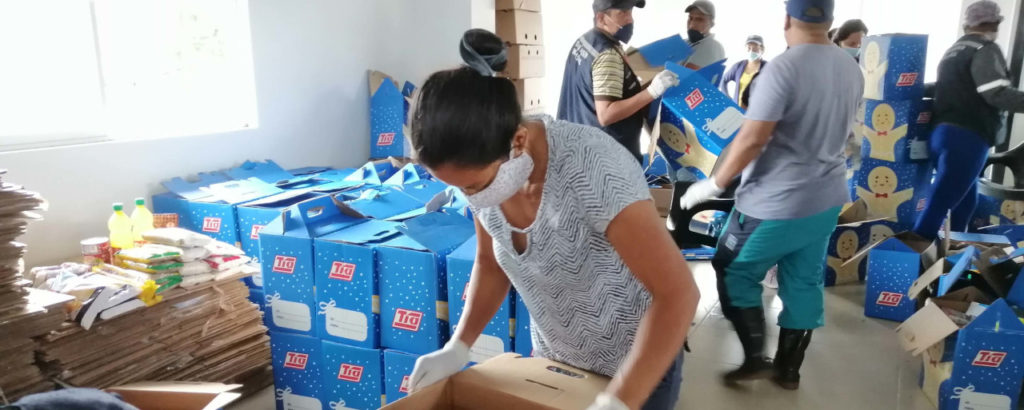
ACTIONS TO PROMOTE AUTONOMY
The indigenous communities most capable of overcoming the health crisis are those least affected by the extensive extractive economy operating in the Amazon. Many communities’ traditional practices have been interrupted by decades of destructive practices and are now in danger. We are working to strengthen Indigenous livelihoods and help communities reclaim their autonomy and self-sufficiency to face future pandemics and extraction in their territories.
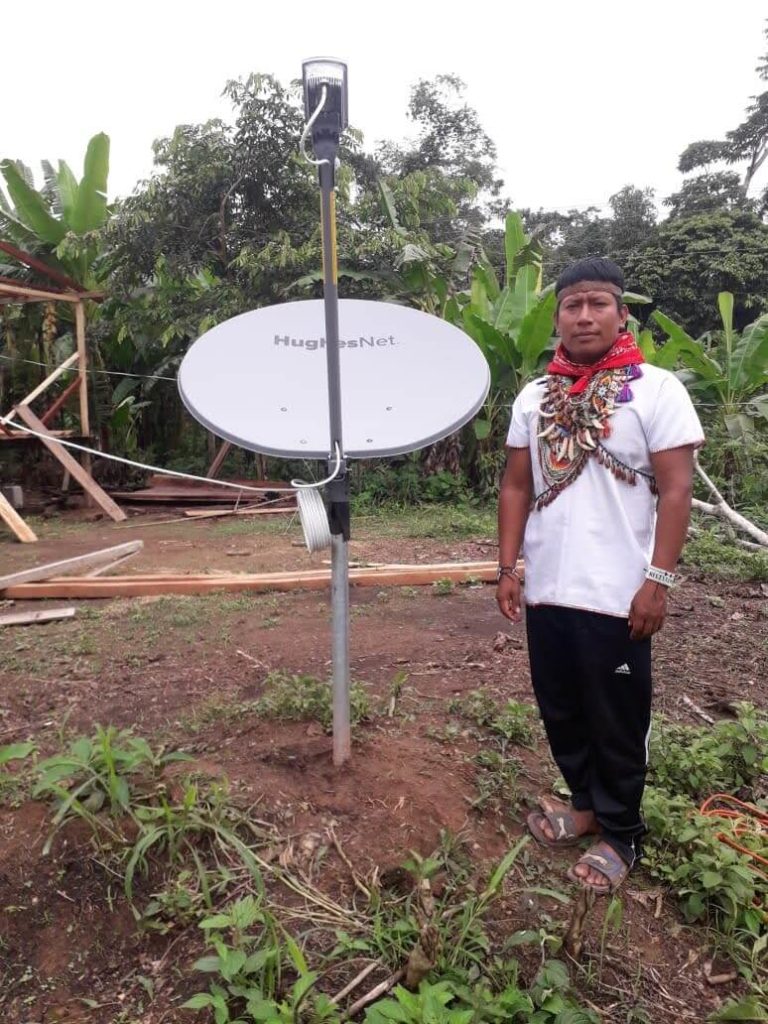
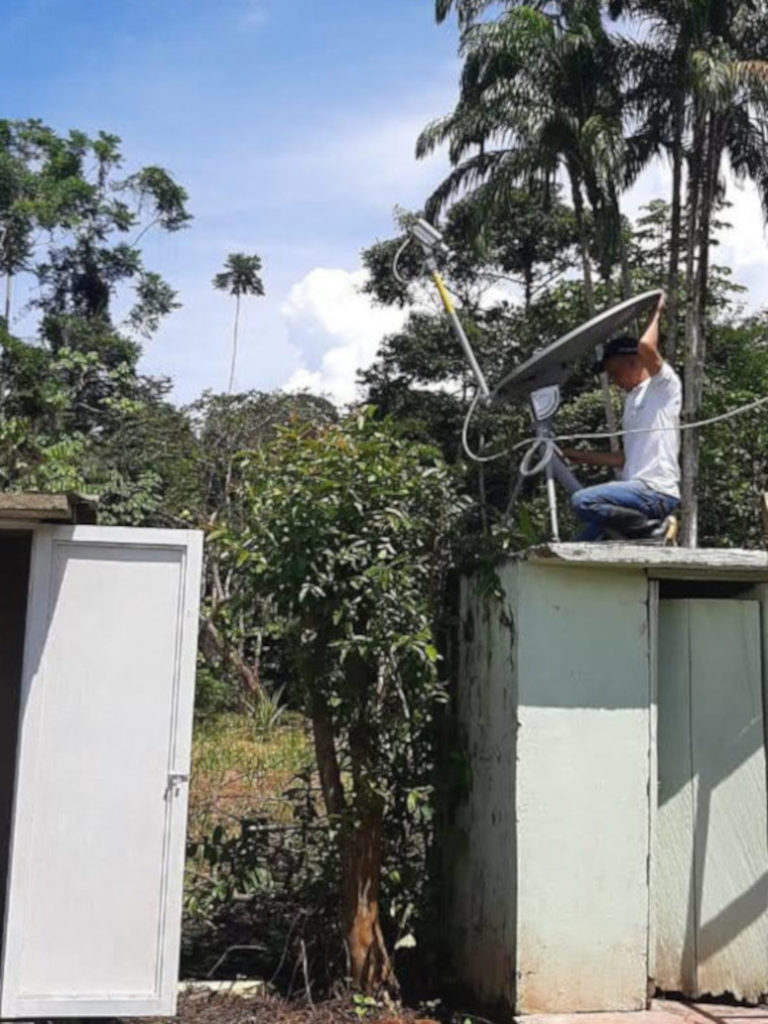
- We installed eight satellite internet services in Siekopai, Siona, and Kofán communities for a year. We will continue to provide communication infrastructure for more communities.
- We provided parts and maintained an HF radio infrastructure of eight Waorani communities in Pastaza, and we delivered a new radio to Pookoya, a Siekopai community in Lagartococha on the Ecuador-Peru border.
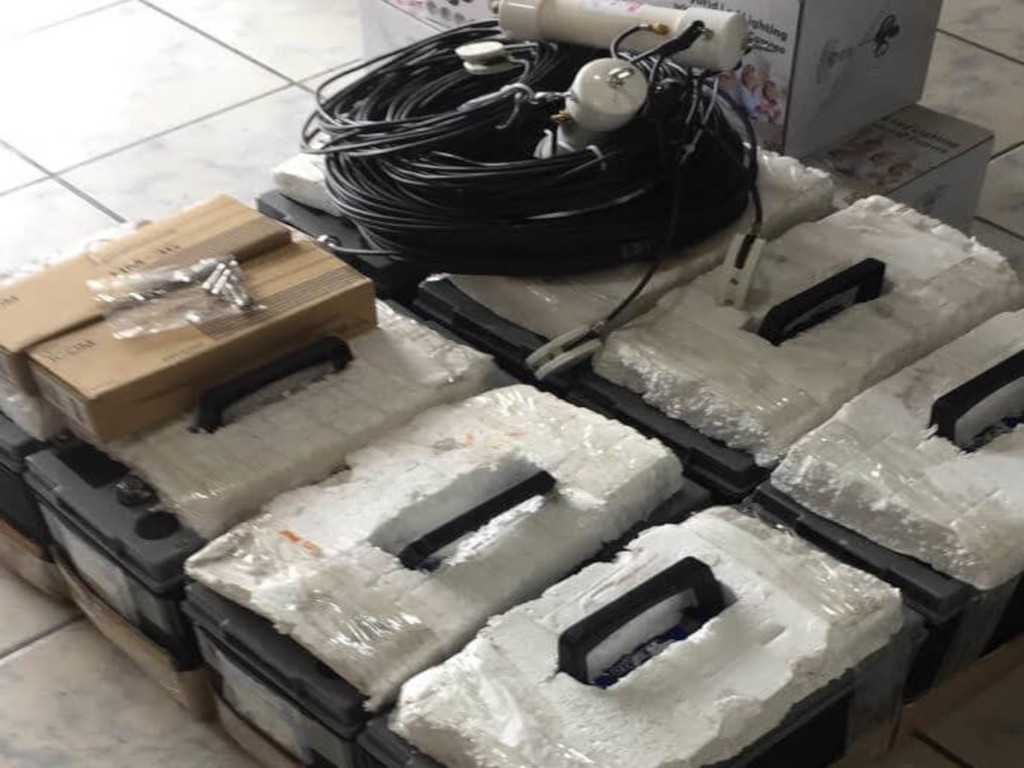
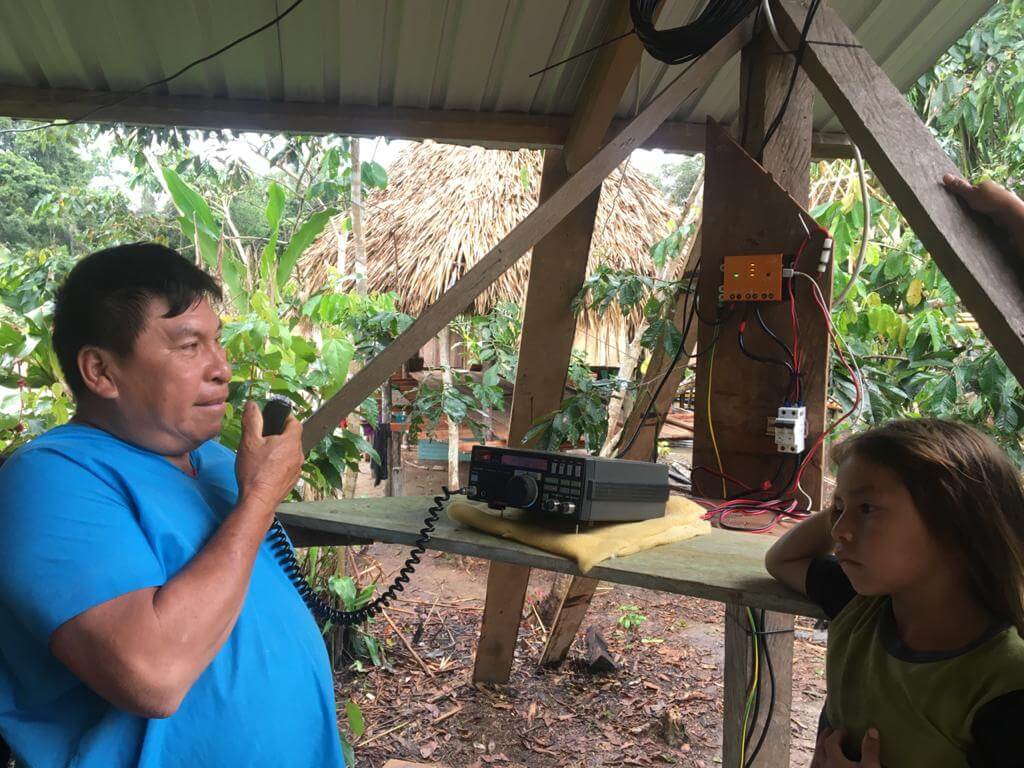
- We delivered Indigenous fish species to six Kofan communities for community fish farming projects. In the future, we will deepen our efforts to integrate and strengthen food sovereignty in communities.
- We acquired 800 masks made by the Dureno Kofan Women’s Association and delivered them to communities. We will continue to promote local economies, seeking solidarity, organization, and autonomy.
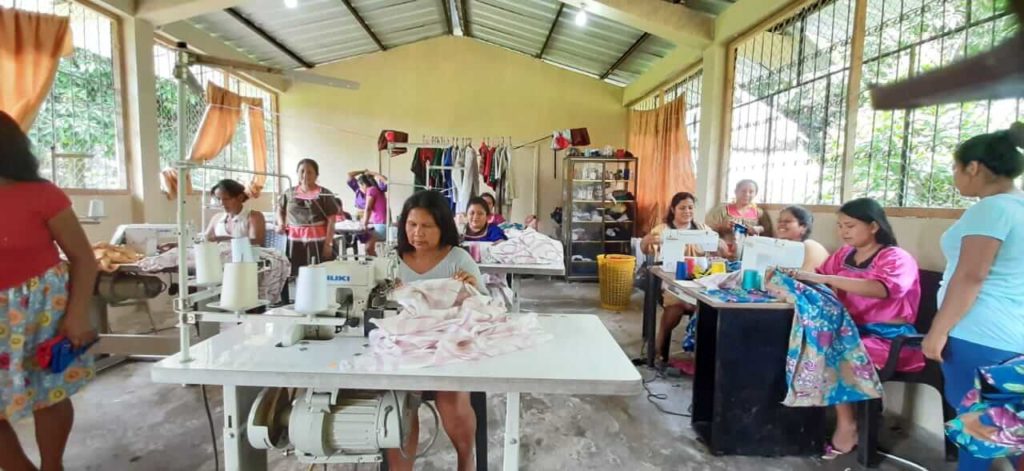
- We supported the Siekopai in strengthening their traditional medicine and producing medicine that alleviated symptoms of COVID-19. We will continue to promote the revitalization of traditional medicine, as well as the awareness of Western medicine in communities.
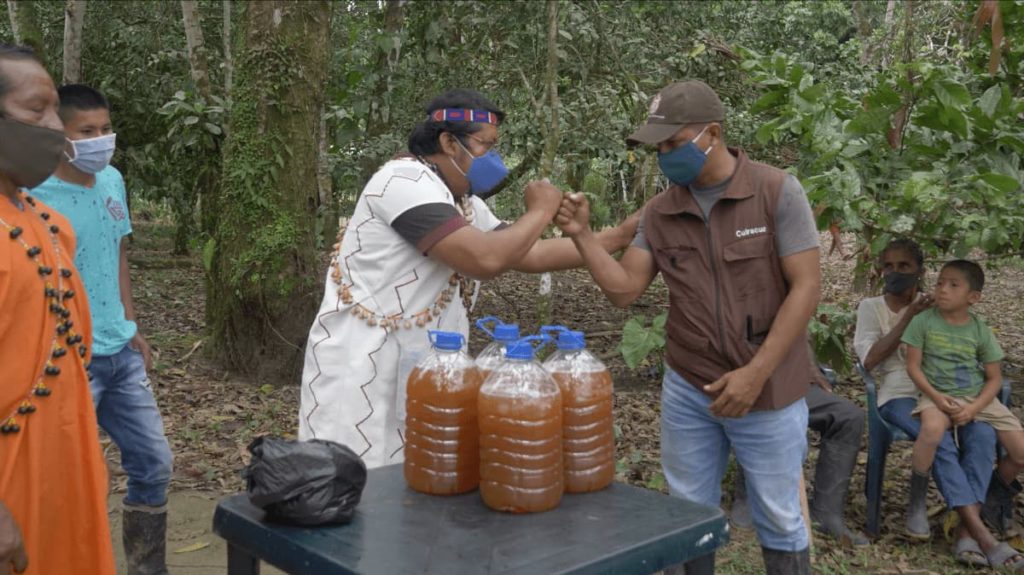
CIVIL SOCIETY SUPPORT
Through the Amazon Emergency Action Campaign, we were able to communicate what was happening in Indigenous territories to organizations and supporters across the globe. As a result, there has been an outpouring of financial support that allowed us to carry out all these efforts. These actions would not have been possible without our partnerships or the generous contributions of people worldwide. Our deepest thanks go to all those who, in some way, supported the indigenous movement in the face of COVID-19.
But our work is not over yet! We will continue to build pathways for Indigenous autonomy and well-being, building on the lessons of this pandemic. We need to remain alert and united, and continue to stand in solidarity with the frontline defenders of the Amazon.
| INDIGENOUS EMERGENCY ACTION FUND | 100.000 USD |
|---|---|
| CONFENIAE action | 25.000 |
| CONAIE action | 25.000 |
| Ceibo Alliance Action | 25.000 |
| Communication and advocacy action | 25.000 |
